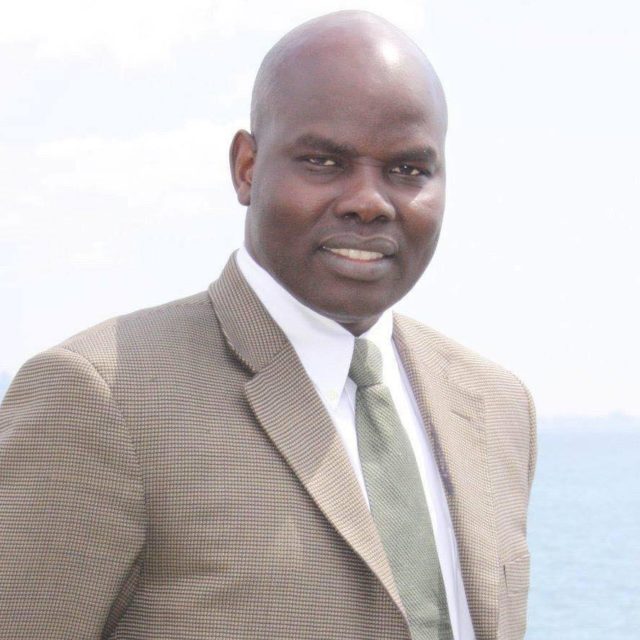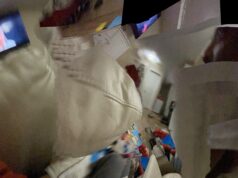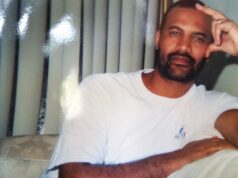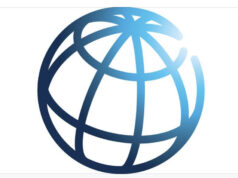AT SUCH A TIME AS THIS; WHAT IS OUR CALL?
“እንደምን አደራቹ?” Good Morning everyone. I would like to thank Dr. Abate Getahun, President of Wollo University for inviting me to speak before you today on this beautiful campus of Wollo University. I would also like to thank the Oromo and Amhara Intellectuals’ Council: for giving me the honor of being your keynote speaker at the third Oromo and Amhara Intellectuals’ Council conference at this beautiful city of Dessi. It is an honor and privilege to speak to you.
We are an ancient people and country; we have a beautiful land with beautiful people; yet, we are poor and conflicted. We have gone through decades of troubling and difficult times; but God has given us an opportunity today— one that we have not had in many years— to make something new in this nation. This is a highly esteemed group of people here today with a noble, but difficult task before you. I want to challenge you to consider how to respond to what may be the high calling of your life, at such a time as this. What happens here may alter the direction of Ethiopia. Are you willing?
Let us start by assessing where we have been as people and as a nation in the last fifty or more years. How has it worked for you, for your community and for our nation? Why? How about for others? Why? Do we need change; and if so, what kind of change? What kind of people are needed to bring the right change? Are you one of them? If so, how do we ready ourselves as individuals and groups? What should drive us to be involved or what should we look for in our leaders?
For example, some may be motivated to become leaders out of ambition for power, control or personal gain. Others may see the poor bare-footed farmers, still working to till their fields with ancient equipment. They may be upset by it and conclude that this should not be the case in 2018. It will lead them to look for solutions. Can we witness the hard lives of woman tending for hungry children, carrying water on their heads and brushing their teeth with pieces of wood and not think there are ways to improve these lives? Are our leaders, present and future, willing to fight for these people? How important is tribal identify when you see people working day and night for survival? Are politicians standing up for these people, who never give up on life, but keep doing all they can even when everything goes wrong?
Today, you have gathered together to start talking about a better future for all. This could be a turning point. Here are the Amhara and the Oromo—two extraordinary groups of people; but really one body, divided only by small differences. Why have these small differences been what has divided you and now has pushed us to have this meeting here. You are all human beings first and created equal.
Even our differences were given to be used for good, not wrong, to bless them like night is to sleep and day is to be awake and active. Each has a different language and differences of culture; but above all these differences is our shared humanity. Now add to that the fact that we have shared the same land and share the same blood. We have an intermixing of ancestry, have intermarried and also have lived among each other—eaten together worked together, walked together and laughed together. We have nurtured each other, suffered together, and died together. However, these amazing things in common have been forgotten and overlooked— sometimes on purpose— to gain short term benefits.
Together you, the Amhara and Oromo make up more than 70% of the total population of the country. Imagine if you both could see your oneness, giving you a bigger vision for how all of you could work together, all grounded on common values and principles. What amazing things would happen in this country then? Not only would you be blessed, but imagine the blessings you would share with many others as those blessings reached unknown places!
The other parts of ethnic groups should not be forgotten, but think of your own specialized functions based on your particular gifts—like the eye or the hand, the brain, the heart or the lungs— all of which need each other. Some fail to understand how important it is to have the body working together, like the blood bringing life to all its parts.
If the Amhara and Oromo in the past years had been able to really see the value of functioning together for our collective best; the efforts to divide you could not have succeeded. The failure to see the bigger picture is the reason the tiny destructive parts succeeded so well that it almost destroyed not only you, but it also threatened our collective existence. I am referring to the adoption of destructive ideologies— like the worst parts of feudalism, communism, and tribalism that deny or twist the truth into lies contaminate society so much that they end up defeating us. It becomes like an epidemic that destroys everyone.
If leaders do not value human life, they may choose to lead by capitalizing on the negative, using their own personal grievances, hate, greed and ambition to justify inciting and exploiting the same in others. This has been a chronic problem in Ethiopia. Why are their messages accepted and supported without critically evaluating where such paths will lead? Instead, because they are outspoken, such leaders can emerge into spokespersons for others, gaining support by stirring up anger, victimhood and alienation; using intergenerational grievances and wrongs from the past to advance their own agendas.
To get out of this cycle, we can face the past and deal with it best where there is truth combined with forgiveness, reconciliation and restorative justice. This will block this mutually destructive cycle of history from continuing to repeat itself. Then we can build a better society for all of us. Yet, we are still recovering from this legacy of leadership that has infected people all over the country and from every ethnic group. This thinking must be confronted and disarmed.
What is the next step?
Knowing we cannot change the past, we can instead, deal with it and create a better future by talking to each other and realizing our survival depends on each other. We could start by working to bring healing to the broken relationships among us, even discovering the “humanity” of others that we never knew. We are not perfect, and will need help, because our pain, wounds and misery are so engrained in us that it has been infused into our personal or tribal identity. Repeating the past will not heal our wounds and lessen our bitterness; instead, we can work on how to start reconciliation with our fellow brothers and sisters. Do we realize that we may be fighting on the same wrong side, against the best for us, without even knowing it? Have we chosen the side that will destroy both of us? Is it time we chose a different side— the side of truth, morality, justice, love, and humility? Can you imagine an Ethiopia like that?
My Oromo and Amhara brothers and sisters, I want to remind you that you are not different; we are in the same family even though we have over 86 different ethnic groups—the family of Ethiopia, all living on the same land and under the same sunny or starry skies. Could you imagine how honoring it would be if we could love each other? We have a call.
We have this life for a short time and we have no time to waste—no time to hate, let alone no time to kill each other. If something happened and some tribe killed another based on ethnicity, religion, politics or something else, the world would simply report that Ethiopians were killing each other. This is the truth. We can and should be better than this. This is why we talk about putting humanity before ethnicity or any other differences and about caring for the freedom of all, not only because it is the right and moral thing to do, but also because no one is free until all are free. This could bring sustainable peace rather than sustainable conflict.
We are not discrediting ethnicity; in fact, it is not a bad thing— unless it is misused— because it has been a source of nurturing, equipping, maintaining order and justice and providing security for thousands of years; however, when it is intentionally or unknowing used as a weapon against others, it is tool of evil and carries with it, consequences that none of us want. That is why we are here today. Too many of our people have suffered as a result of the abuse of ethnicity and its about time we say this is enough.
Each of us here today has a responsibility to reconcile our own souls so we can become instruments of greater purposes. We are bigger than our tribal identifies, meaning our identity as human beings. If we did this better, we would see a better Ethiopia. Worshiping ethnicity is like a false god that comes before God Himself. This must end. Will it begin here today? Will this kind of heart to heart dialogue spread throughout the country to cleanse our hearts, minds, souls and land?
Every ethnic group in this country has fought on the wrong side at some time in the past. Let’s get on the right side, starting with talking to each other rather than about each other. Let this talk start in every village, town, district and region of Ethiopia. Be careful, right now, the most destructive threat to this country is its tribal ideology. Look at the ethnic-based violence. It must be confronted.
Will you who are here today, and other people throughout the country, come out and talk about this, confront it honestly and actually make changes that uphold the humanity of all our people? What is the call to the Oromo and Amhara at such a time as this? Do you realize how your numbers, strength and strong convictions could be used to bring genuine peace, justice, and prosperity to Ethiopia? Do you know how such reconciliation between you could be a beacon of hope for others in the country, in Africa and beyond? Is this your time? Will you respond to the call.
Let the light shine over our beautiful people and our beautiful land!
Thank You

























